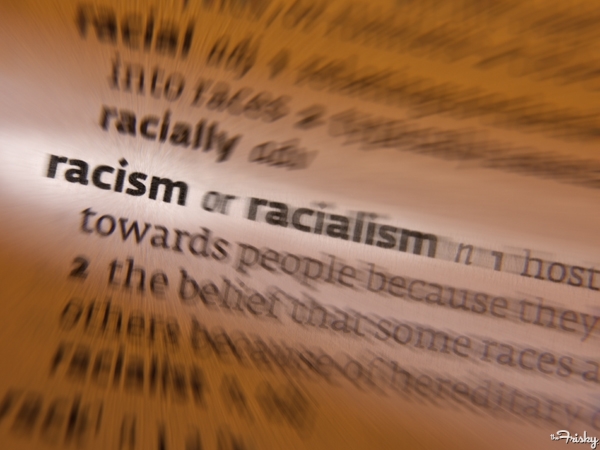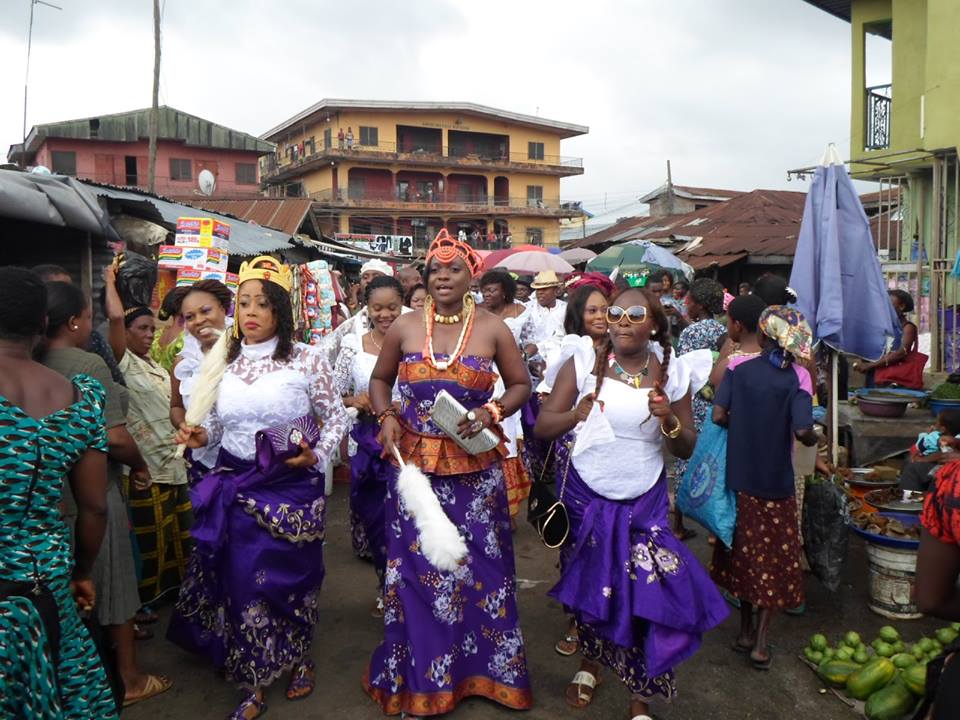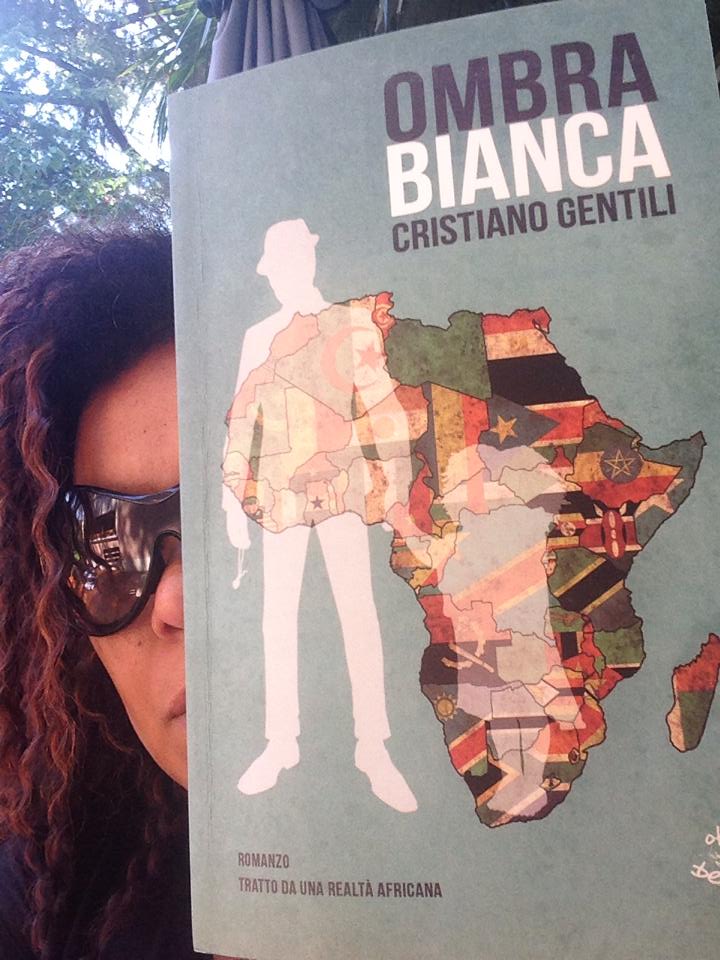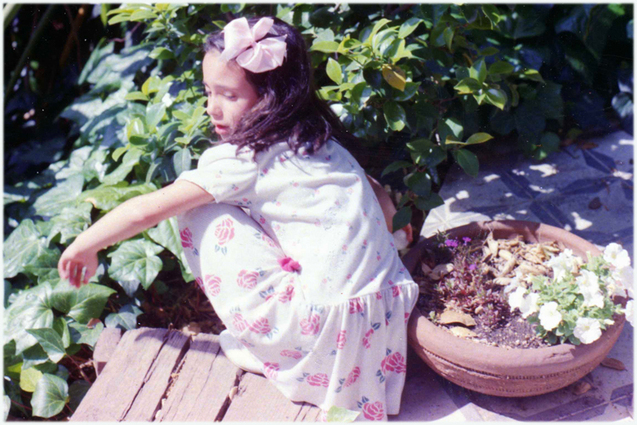Luisa Casagrande's insight: Discussions about racism should be all-inclusive and open to people of all skin colors. However, to put it simply, sometimes White people lack the experience or education that can provide a rudimentary foundation from which a productive conversation can be built. This ...
La Stampa “Disimparare” il razzismo La Stampa A volte il discorso razzista comincia così, in sordina, con una premessa: «Non sono razzista, ma…» e poi prosegue con una valanga di affermazioni di coloritura chiaramente razzista.
Beautiful procession of Igbo-Owerri female age grade group during the Oru-Owerri festival at Owerri Municipal in Imo State, Nigeria. Oru-Owerri festival is a festival and cultural carnival celebrated annually by the Igbo people (ndi-igbo) of five traditional Owerri villages in Owerri municipality of Imo state in Nigeria. The festival which is also known as the 'traditional Christmas' of the people of Owerri, is in remembrance of the founding of Owere (Owerri) historically, about 1463 AD or thereabout but in the 14th century by Ekwem Oha Arugo. The main importance of this festival is the celebration of life, love and oneness amongst the people of Owere nchi ise community.
It is this festival that make Owerri Municipal to be the utmost hub of cultural activities or the melting point of culture and tradition in Imo State. The Owerri festival which is celebrated in July every year and lasts for a week, commences with roasting and eating of special yams.
Culture or tradition of a particular community cannot be complete without one tracing the origin of the people that practise the culture. The culture of Owerri people cannot be completed without one tracing a little of their history. Ekwema, the father of five children, had squabble with his kindred while living with them at a place called Uratta which is very close to Owerri. History has it that the trouble which ensued between Ekwema and his kindred led Ekwema to go into self-imposed exile with his five children. While wandering in the big forest, his children became hungry and wanted to eat before continuing their journey. They eventually arrived at Ugwu which is now popularly known as Ugwu-Ekwema where Ekwema settled and roasted yam and fed his children.
After eating, they became thirsty and wanted water to drink. Apparently worried by the situation they found themselves, they began to search for water around the area until they were able to trace Otamiri river which source began at Egbu, near Owerri. At the end of this, they came back to settle down in Owerri having found Otamiri river as a source of their drinking water. Ekwema had five children namely Amawom, Umurorojo, Umuodum, Umuoyima and Umuonyeche which later metamorphosed into Owere Nchi-ise villages that make up Owerri community with His Royal Highness,Eze Emmanuel Njemanze Osuruigbo V. Any important personality that visited Imo State without a courtesy call to the traditional ruler Owerri will be regarded as having not completed his visit. He commands respect in Imo State.
Source: TRIP DOWN MEMORY LANE
http://kwekudee-tripdownmemorylane.blogspot.com/2014/06/oru-owerri-festival-historical-and.html
Luisa Casagrande's insight: I recently received a new book, Early Childhood Development: a Multicultural Perspective (6th ed.), by Jeffrey Trawick-Smith, published in 2014. (I get to review all sorts of new books as a college professor). In this book there is an extensive section on gay and lesbi...
By the time you read this, it’s possible that every single person on the planet will know who Neymar da Silva Santos Júnior is. The image above is of Neymar from five days ago. This is Neymar from ...
Source: africasacountry.com
È con grandissimo onore che scrivo questo post per aiutare un mio carissimo amico, nonché divulgatore, Cristiano Gentili, a far conoscere una realtà sconosciuta ai più.
In molti paesi africani, migliaia di persone con albinismo sono considerate esseri soprannaturali; sono discriminate, perseguitate e cacciate solo per la loro pelle bianca. Vivono isolate, in estrema povertà e, a causa del sole equatoriale, la loro speranza di vita è di circa 30 anni. Sono gli ultimi degli ultimi.
Anche il Santo Padre Francesco ha realizzato una registrazione in cui ha letto alcuni brani del romanzo "Ombra Bianca", di @Cristiano Gentili, per sensibilizzare l'opinione pubblica sulle condizioni di vita degli africani con albinismo: bambini e adulti rifiutati e ripudiati.
Sul sito www.ombrabianca.com viene lanciata la campagna internazionale di sensibilizzazione “Help African Albinos”. Chiunque può seguire l’esempio del Santo Padre e donare la sua voce, leggendo, in lingua italiana con sistema di traduzione multilingua, una frase del romanzo (il Papa ha letto alcune frasi del personaggio Padre Francis) e partecipare così alla creazione del primo Audiolibro Sociale mai creato prima. Sarà l’audiolibro letto dal maggior numero di persone al mondo e darà simbolicamente voce a chi non ha voce per farsi ascoltare. La campagna internazionale si contraddistingue per l’Hashtag #HelpAfricanAlbinos e il lancio di una petizione in 6 lingue sul sito www.change.org per manifestare vicinanza e chiedere un aiuto concreto a favore degli africani albini che sarà reso possibile grazie alla partnership con alcune ONG tra cui Medici con l’Africa-CUAMM.
Potete trovare maggiori informazioni qui http://www.ombrabianca.com/una-realta-incredibile/
Oppure, per approfondire l'argomento, acquistare il suo splendido libro "Ombra Bianca" di Cristiano Gentili
ISBN 978-88-908761-1-0
Grazie di vero a chi vorrà sostenere e dedicare qualche minuto del proprio tempo a questa campagna.
In molti paesi africani, migliaia di persone con albinismo sono considerate esseri soprannaturali; sono discriminate, perseguitate e cacciate solo per la loro pelle bianca. Vivono isolate, in estrema povertà e, a causa del sole equatoriale, la loro speranza di vita è di circa 30 anni. Sono gli ultimi degli ultimi.
Anche il Santo Padre Francesco ha realizzato una registrazione in cui ha letto alcuni brani del romanzo "Ombra Bianca", di @Cristiano Gentili, per sensibilizzare l'opinione pubblica sulle condizioni di vita degli africani con albinismo: bambini e adulti rifiutati e ripudiati.
Sul sito www.ombrabianca.com viene lanciata la campagna internazionale di sensibilizzazione “Help African Albinos”. Chiunque può seguire l’esempio del Santo Padre e donare la sua voce, leggendo, in lingua italiana con sistema di traduzione multilingua, una frase del romanzo (il Papa ha letto alcune frasi del personaggio Padre Francis) e partecipare così alla creazione del primo Audiolibro Sociale mai creato prima. Sarà l’audiolibro letto dal maggior numero di persone al mondo e darà simbolicamente voce a chi non ha voce per farsi ascoltare. La campagna internazionale si contraddistingue per l’Hashtag #HelpAfricanAlbinos e il lancio di una petizione in 6 lingue sul sito www.change.org per manifestare vicinanza e chiedere un aiuto concreto a favore degli africani albini che sarà reso possibile grazie alla partnership con alcune ONG tra cui Medici con l’Africa-CUAMM.
Potete trovare maggiori informazioni qui http://www.ombrabianca.com/una-realta-incredibile/
Oppure, per approfondire l'argomento, acquistare il suo splendido libro "Ombra Bianca" di Cristiano Gentili
ISBN 978-88-908761-1-0
Grazie di vero a chi vorrà sostenere e dedicare qualche minuto del proprio tempo a questa campagna.
Anna Politkovskaja in un suo famoso articolo scrisse: “il mondo teme una reazione nucleare, io temo l’odio. Si accumula sempre di più ed è fuori controllo”. Non ho mai dimenticato queste parole, ma mai come in queste settimane si sono prepotentemente imposte alla mia attenzione, rievocate dalle r...
I'm neither straight nor white, but I'm frequently mistaken for both -- and it's taught me a lot about privilege (I'm neither straight nor white, but I'm frequently mistaken for both -- and it's taught me a lot about privilege
Source: www.salon.com
In Hanif Kureishis, The Buddha of Suburbia, the main character Karim, experiences what it means to be a man in a world where he is unsure of his true identity. Growing up in South London, Karim was an English boy of Indian decent. Karim’s mother was British and his father was born in India. From the moment of his birth, Karim begins to struggle with his identity because he is the product of the blend of two very different cultures. According to McLeod, “performance [is] the means by which new, hybrid identities are negotiated” (McLeod 218). The novel demonstrates this by giving the reader a look into the personal life of an adolescent who doesn’t belong to either culture. Through the pressures of society to become a “man”, he is forced to discover himself through performance both through his acting career and his experiences in reality. Karim grows up trying to assimilate into one or the other culture, but he realizes that he is just going to have to create his own identity. He does this by moving to the United States where he can become his own person and start over because no one knows him and he can essentially be anybody if he so chose. Karim explores life both mentally and physically. He even experiments sexually. By performing various roles in life, he is able to establish a new identity for himself that is all his own. He has the opportunity to start new and become anybody he wanted to be. For a person of mixed heritage, it is important to form a blend of the two that is unique to each person. This is especially true in America, which is known for being the “melting pot” of the world. For hundreds of years, people from different backgrounds have been immigrating to America, and these people combine their cultures resulting in thousands of mixed hybrid identities. By performing their various culture roles, they are also able to establish their own identities. In the novel, Karim becomes a relatively successful actor and beings to identify more with the western culture. By assimilating more into the ways of Americans, Karim begins to slowly lose his Indian identity. However, he cannot ever fully escape from this identity, because it is in his blood and his heritage will always be apparent in his life. In conclusion, Karim is a special character. He is an indecisive male who is searching for his true identity by blending the two cultures that are in his blood. By performing the various roles of each of these cultures, and blending them with the ones he has established for himself in America, he is able to create an identity that he can be satisfied with at least for the time being.
Thanxx to Lea Ann Butcher















